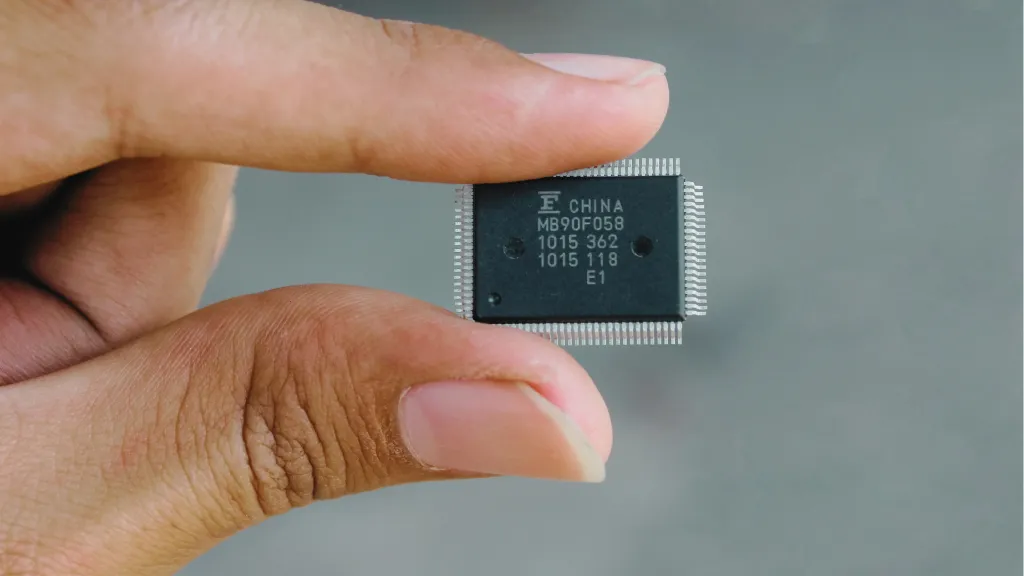Have you ever wondered how your computer’s operating system works behind the scenes? As someone who uses a computer daily, I was curious about the different services running in the background, ensuring everything runs smoothly. That’s why I decided to research and write about operating system services.
In this article, I will explain what operating system services are and why they are important. I will also describe an operating system’s different services, such as process management, memory management, file management, device management, and security management.
By the end of this article, you will better understand how your computer’s operating system works and the critical role that its services play in keeping your computer running smoothly.
So, let’s dive in!
Process Management Services

Process Management Services are a crucial part of an operating system. Essentially, a process is a program that is running on your computer. Every time you open an application or run a program, a new process is created to handle that task. Process Management Services help manage these processes so your computer can handle multiple tasks simultaneously.
An operating system can provide different types of Process Management Services. One important service is process scheduling, which determines which processes get to use the CPU (central processing unit) and for how long.
For example, if multiple applications are open simultaneously, the operating system’s process scheduler will switch between them and allocate resources accordingly.
Another important service is process synchronization, which helps manage communication between different processes. This is especially important when multiple processes need to access the same resources, like a file or a printer. Process synchronization ensures that these resources are used in a way that is safe and efficient.
Process Management Services ensure your computer can handle multiple tasks without crashing or freezing. Without these services, your computer would struggle to run even basic programs, let alone handle multiple applications simultaneously.
Memory Management Services
Have you ever run out of memory on your computer? It can be frustrating when you’re in the middle of working on a project, and suddenly your computer slows down or freezes. That’s where Memory Management Services come in.
Memory Management Services help manage your computer’s memory, essentially its working space. Every program you run takes up a certain amount of memory, and if you have too many programs running simultaneously, your computer can run out of memory.
Memory Management Services help prevent this by allocating memory to different programs and ensuring that memory is freed up when it’s no longer needed.
One important Memory Management Service is virtual memory, which allows your computer to use a portion of your hard drive as if it were additional memory. This can help prevent your computer from running out of memory when you have a lot of programs open at once.
Another important service is memory protection, which helps ensure that different programs can’t access each other’s memory. This is important for security reasons and helps prevent programs from interfering with each other.
Memory Management Services are critical for ensuring your computer has enough memory to run multiple programs without crashing or freezing. Without these services, your computer would struggle to handle even basic tasks, let alone run multiple applications simultaneously.
File Management Services
File Management Services are essential for keeping track of all the files on your computer. The operating system’s File Management Services handles those changes whenever you create, modify, or delete a file.
One important service that File Management Services provide is file organization. This includes creating and managing directories (also known as folders), which help you keep your files organized and easy to find. Finding a specific file on your computer could be like searching for a needle in a haystack without file organization!
Another important service is file access control, which helps determine who can access different files on your computer. This is important for protecting sensitive information and preventing unauthorized file access. File access control can also help prevent accidental deletion or modification of important files.
A third important service is file backup and recovery, which helps ensure you don’t lose important files in a computer crash or other disaster. File backup and recovery services allow you to make copies of your files and store them in a safe place so that you can restore them if something goes wrong.
File Management Services are critical for keeping your files organized, secure, and backed up. Without these services, you could lose important data or struggle to find the needed files.
Device Management Services
Device Management Services are responsible for communicating with the hardware components of your computer, such as printers, scanners, and external hard drives. Without these services, your computer couldn’t communicate with these devices and use them to their full potential.
One important Device Management Service is device driver management. Device drivers are software programs that allow your computer to communicate with hardware devices. Device driver management ensures that the correct drivers are installed and updated so your computer can communicate with your devices most efficiently.
Another important service is plug-and-play management, which allows you to connect new devices to your computer and use them without installing drivers or configuring settings manually. Plug-and-play management ensures your computer can detect new devices and automatically configure them.
A third important service is power management, which helps you conserve battery life on laptops and other portable devices. Power management services can automatically adjust your computer’s settings to reduce power consumption, such as turning off the display or putting the computer to sleep when it’s not in use.
Device Management Services are critical for ensuring your computer can communicate with hardware devices and use them to their full potential. Without these services, you might struggle to connect new devices to your computer or experience reduced performance when using them.
Security Management Services

Security Management Services protect your computer from various threats, such as viruses, malware, and unauthorized access. These services work in the background to ensure your computer and data are secure.
One important Security Management Service is antivirus software. Antivirus software scans your computer for viruses and other types of malware and helps remove them if found. This is important for preventing these threats from compromising your computer and stealing your personal information.
Another important service is firewall management, which helps prevent unauthorized access to your computer. Firewalls are a barrier between your computer and the internet, preventing hackers and other malicious users from accessing or stealing your data.
A third important service is encryption management, which helps protect your data from being intercepted and read by unauthorized users. Encryption converts your data into a secret code that can only be decoded with the proper key.
Encryption management ensures that your data is properly encrypted and that only authorized users can access it.
Security Management Services are critical for protecting your computer and data from various threats. Without these services, your computer could be vulnerable to viruses, malware, and other attacks, compromising your personal information and putting you at risk.
Conclusion
Operating system services play a critical role in managing the various functions of your computer and ensuring that it runs smoothly. From managing processes and memory to organizing files and communicating with hardware devices, these services provide a seamless user experience.
Furthermore, Security Management Services are essential for protecting your computer and personal information from various threats. Without these services, your computer could be vulnerable to viruses, malware, and other attacks.
Understanding the different operating system services and how they work together can help you get the most out of your computer and ensure it’s running at its best. Knowing how these services work can help you troubleshoot issues, optimize your computer’s performance, and keep your personal information safe and secure, whether casual or power user.







